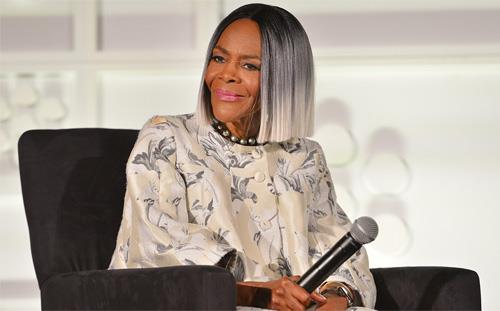
If you were hunting for portrayals of strong black women on TV or movie screens in the early 1970s, the modest number of choices at least covered a wide range.
On one end of the scale, you had Pam Grier in Foxy Brown or Coffy, whose trailer described Grier's character as "the baddest one-chick hit-squad that ever hit town!"
Somewhere on the other end, you had Cicely Tyson.
In the 1972 film Sounder, Tyson played Rebecca Morgan, a 1930s woman raising a family of good citizens by being smart and strong and passing those notions on to her kids.
Two years later, Tyson surfaced on TV as the title character in The Autobiography of Miss Jane Pittman, a woman born into slavery and lived to demonstrate for the civil rights that somehow hadn't been granted in the century since slavery ended.
Strange as it sounds, Foxy Brown and Jane Pittman had a couple of things in common. They knew how the world worked and how to survive in the world. They were proud. They declined to be victims.
Given how African-American women had been portrayed on the screen most of the time, when they were portrayed at all, this was progress.
Still, as much fun and perhaps as cathartic as it was to watch Pam Grier take visceral revenge on a loathsome man, it was the quieter strength of Cicely Tyson that has most reverberated through the subsequent half-century.
Tyson, who died Thursday, said early in her career that "I saw I could not afford the luxury of being just an actress. So, I made a choice to use my career as a platform to address the issues of the race I was born into."
That goal fits nicely with her television roles in Roots as Kunta Kinte's mother; The Marva Collins Story as an iconic Chicago educator; Sweet Justice as the matriarch human rights lawyer Carrie Battle; The Rosa Parks Story as Parks' mother Leona Edwards McCauley; and A Lesson Before Dying as prisoner's rights advocate Tante Lou.
She played Coretta Scott King and Harriet Tubman.
It's not that Tyson never had fun. Over the years, she took guest roles in shows from Here Come the Brides to How to Get Away With Murder. She played Ebenezer Scrooge's wife.
All of that confirmed the range of her acting skill and set the stage perfectly for her final tour de force, A Trip to Bountiful, which won her a Tony Award on Broadway at the age of 88 and morphed into an acclaimed TV movie in 2014.
She played an elderly woman, Mrs. Carrie Watts, trapped in the home of an abusive daughter-in-law and a son who won't defend her. Her only wish before she dies is one more trip back home to Bountiful, where she lived the part of her life she most wants to remember. Against all odds and logic, she finds a way to do it.
Like Rebecca Morgan, Mrs. Carrie Watts was smart and strong.
Strength was also the signature of Miss Jane Pittman. She absorbed and understood the ground-level history of a century in which, among other things, emancipation led the country down roads no one could have anticipated.
At the age of 110, she joins the Civil Rights movement, a bold stroke captured in the memorable scene where she drinks in triumph from a whites-only water fountain.
Like Miss Jane Pittman, Cicely Tyson spread her legacy over many decades, crafting a whole that precisely matched the solid and enduring sum of its parts.
Her odyssey, like Miss Jane Pittman's, was neither predictable nor easy.
"I'm a woman, and I'm black," she told the Bergen Record several years ago. "I wait for roles – first, to be written for a woman, then to be written for a black woman. And then I have the audacity to be selective about the kinds of roles I play. I've really got three strikes against me. So, aren't you amazed I'm still here?"
Maybe not amazed as much as gratified.